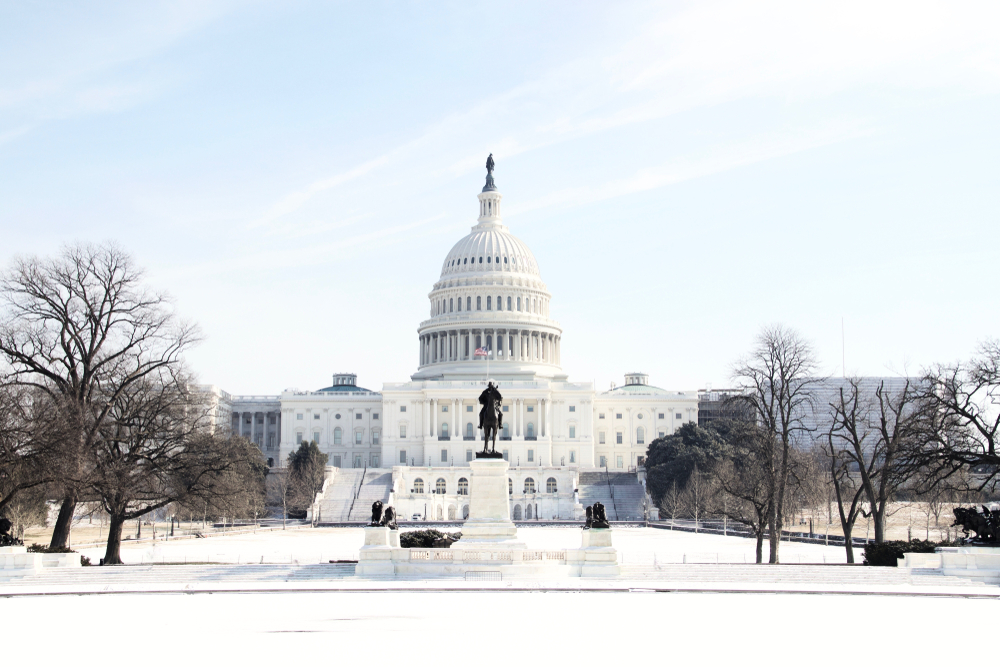Peace, Justice, and a People-Centered Budget in 2024 and Beyond
By
Alliyah Lusuegro
Posted:
|
Climate Change,
Immigration,
Military & Security
 Photo Courtesy of Russell Johnson (Shutterstock)
Photo Courtesy of Russell Johnson (Shutterstock)
As we get ready to close out the year, we face a significant moment. The outcome of the U.S. election left many feeling angry and despondent, and conditions for the near future appear grim. Communities we’re a part of and that we fight for - immigrants, poor people, climate advocates, workers, and more - face even graver threats.
We recognize that it will be challenging in the next few years to advance our goals and dreams as we fight to uphold democracy and basic human rights. But we’re ready for it. IPS Executive Director Tope Folarin says: Fascism feeds off of despair. We refuse. We choose to process our feelings and reflect on our wins - these steps will inspire the way forward.
Here are a few powerful examples of how we’ve supported the ongoing fight for a federal budget that prioritizes people and the planet over power and profit, and how we will persevere.
1. Peace for Gaza
This year, there have been powerful movement efforts around Gaza and protesting Israel’s genocide on the Palestinian people. We thank the efforts of our mighty Institute for Policy Studies colleagues, the New Internationalism team, for their critical role and enduring labor in this fight. Since October 2023, movement demands have stood firmly in a permanent ceasefire and an arms embargo now:
-
Student encampments captured the attention of their campus leadership and the world. Young people are making it clear that they want divestment and transparency from university leaders about the relationship between their education and war profiteers.
-
Jewish communities and other allies led sit-ins and rallies in large public spaces all over the U.S., such as in the nation’s capital for Netanyahu’s arrival, and on the international scale by the tens of thousands - all refusing Israel’s offense with “Not in our name!”
-
Consumers boycotted companies like McDonald’s and Starbucks tied to Israel’s offense, resulting in a decline in sales.
-
Over 100 cities and towns passed ceasefire resolutions across the country calling for an end to the genocide.
-
We highlighted the dual loss of U.S. support for genocide even as those resources could improve lives here at home.
2. Climate justice and demilitarization
We envision a world where there is no warming and no war, and we’re taking the steps to get there. This year was important for us in making the active connection between the climate crisis and militarism. We worked with partners in the climate movement and peace movement to maintain that true climate solutions must have demilitarization at their core.
-
With 350.org, we hosted two webinars during the Global Week of Action for Peace and Climate Justice, coinciding with New York Climate Week.
-
Also around this time, we released this policy platform with the Quincy Institute and Justice is Global, laying out what a program for U.S.-China cooperation would look like.
-
We exposed the connections between climate change and war, illuminating spending priorities around Earth Day, casting a homegrown critique on nuclear proliferation in New Mexico, examining U.S. militarization in the Philippines, and explaining how Hurricane Helene is a prime example of militarism and climate injustice.
-
Our budget trade-offs, illustrating how our tax dollars could be spent to actually better the lives of working people, were cited and shared among peace activists - bolstering calls to action.
3. Demilitarization of borders
We’re prepared for the draconian border enforcement threats against immigrant communities since we know that people power works. The immigration movement has been fighting this fight for some time - and will persist.
-
We marched with our immigration ally, United We Dream, earlier this year to fight for immigrant protections and a permanent ceasefire in Gaza.
-
Mass deportation made headlines under the conservative policy playbook of Project 2025 - a real threat for our families, friends, and neighbors. We’ll continue to push that mass deportation would be a nightmare for American communities.
-
Since the Department of Homeland Security was created in 2003, two border enforcement agencies, ICE and CBP, have been responsible for carrying out the detention and deportation of families and children. We supported work that blocked over $12 billion in funding those agencies as part of the Defund Hate coalition in the last few years.
-
Point blank: We won’t stop defending immigrant communities and making the case that immigration is good for this country.
Looking forward to 2025, we ground ourselves in our mission: Fighting for a U.S. federal budget that prioritizes peace, economic security and shared prosperity.
Last year, we found that 62% of discretionary spending - the portion of the budget that Congress decides annually - is dedicated to militarism. Unaccountable military spending doesn’t make us safer. In fact, a militarized federal budget threatens the safety of working people by siphoning resources from much-needed public services that actually enrich corporations, increase police violence, and accelerate the climate crisis.
We will continue to work on demilitarizing federal spending and outlining where this money should go to: true human needs like housing, healthcare, education, and a just climate transition. With our research and data, we will keep supporting the work of people and movements. Together, we will keep saying no to wars and weapons, and pursue peaceful solutions.